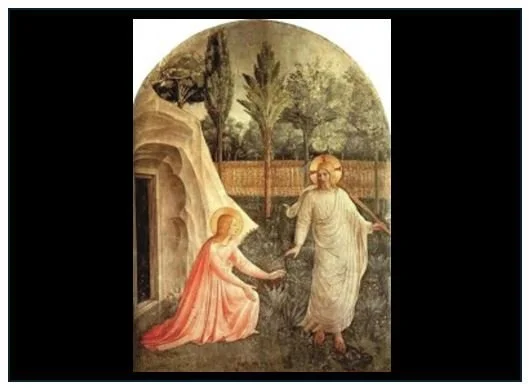The Resurrected Life, Part 2: Life in Relationships
Rev. Erik Swanson
May 11, 2025
You can view the sermon here.
One of my most transformative experiences at the Taizé monastery involved a conflict with a fellow volunteer named Stefano. Stefano always believed he was right, even when he wasn't. I had just organized a storage room filled with biscuits for the monastery’s main kitchen and proudly showed Stefano the result. Stefano, however, dismissed the arrangement and demanded it be redone. Frustrated and hurt, I stormed off and sought counsel from Brother Thomas, a spiritual director. After listening patiently, Brother Thomas asked a simple but powerful question: “Have you prayed for him?” This question shifted my focus from personal hurt to a spiritual invitation. Through prayer, my relationship with Stefano was transformed, eventually becoming a deep friendship.
Resurrected Life in Relationships
This story sets the stage for a broader reflection on the theme of resurrected life in relationships. The Gospel story of Jesus and Simon Peter (John 21, verses 15-19) is used as a model. After Peter's betrayal—denying Jesus three times—Jesus does not reject him but instead offers a path toward restoration. By asking Peter three times if he loves him, Jesus creates an opportunity to repair what was broken. This act highlights that new life in relationships requires truth-telling, accountability, and grace.
God Brings New Life in Human Relationships
Relationships inevitably face strain. When hurt, it’s easy to dwell in our own pain and create negative narratives about others. But if we can hold onto the image of resurrection — of new life arising from brokenness — we can open ourselves to transformation. God, as Creator, brings new life even in strained human connections, but we must be willing to participate in that renewal.
Love Over Punishment
We should also consider the fragility of Peter, who felt hurt when Jesus questioned his love. This illustrates how we can resist accountability, even when we are the ones who caused harm. That resistance can block healing. In contrast, Jesus’ actions model how to call someone in — not out — offering a way forward in love rather than punishment.
Life-giving Transformation
Long-term relationships often lead us in unexpected directions, as seen in Jesus' prophetic words to Peter. Relationships shape and challenge us, often leading us beyond our original plans, and this transformation can be holy and life-giving if we are open to it.
Look for Christ in Each Other
One key practice I want to encourage is to look for the Christ in the other — to see the divine image in each person. Instead of approaching others with agendas of control or correction, we are invited to see them with love and reverence. This practice can change how we relate, even in the midst of disagreement or pain.
We need to practice this spiritual exercise: when tension arises, pause, look for the Christ in the other, and pray for their well-being. In doing so, we participate in the resurrection—not just as a past event, but as a present, transformative force in our relationships. New life is always possible.

